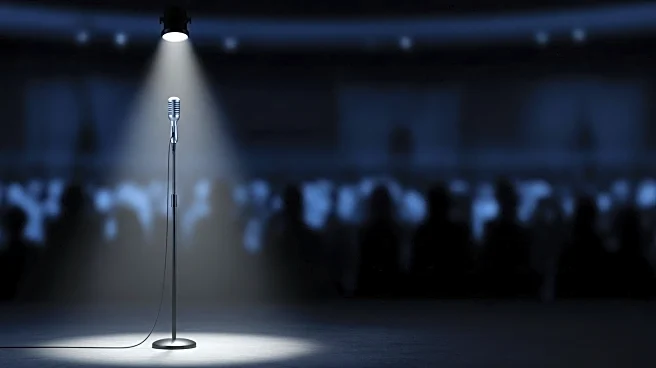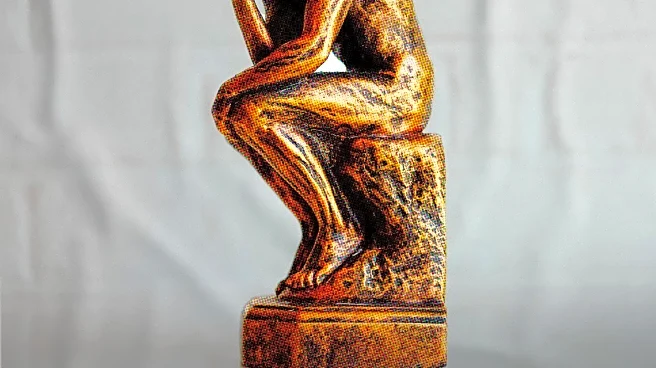What is the story about?
What's Happening?
Comedian Louis CK has defended his participation in the Riyadh comedy festival in Saudi Arabia, despite criticism from fellow comedians who argue that the event serves to whitewash the Saudi regime's human rights abuses. Speaking on Real Time With Bill Maher, CK acknowledged the mixed reactions but described the festival as a 'good opportunity' to engage with audiences in the region. The festival, which features prominent comedians like Dave Chappelle and Kevin Hart, is organized by entities linked to the Saudi government, raising ethical concerns about censorship and human rights. CK noted that he was only restricted from joking about religion and government, which he accepted as part of the opportunity to perform in a region opening up to comedy.
Why It's Important?
The participation of high-profile comedians in the Riyadh festival highlights the ongoing debate about cultural engagement with countries known for human rights violations. Critics argue that such events can be used by authoritarian regimes to improve their international image while continuing oppressive practices. For comedians, the decision to perform in Saudi Arabia involves balancing the potential for cultural exchange and the risk of complicity in whitewashing human rights abuses. The festival's connection to the Saudi government, known for its crackdown on free speech and LGBTQ rights, adds complexity to the ethical considerations for performers.
What's Next?
As the festival continues, it remains to be seen how the international comedy community will respond to the participation of its members in Saudi Arabia. The event could lead to increased scrutiny of cultural exchanges with authoritarian regimes and potentially influence future decisions by artists and entertainers. The reactions from audiences and the Saudi government may also impact the country's cultural policies and openness to international performers.
Beyond the Headlines
The controversy surrounding the Riyadh comedy festival underscores broader issues of artistic freedom and the role of cultural diplomacy in international relations. It raises questions about the responsibilities of artists in engaging with regimes that restrict freedoms and the potential for cultural events to foster dialogue and change. The festival may also influence perceptions of Saudi Arabia's efforts to modernize and diversify its cultural landscape.
















